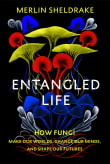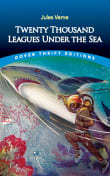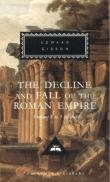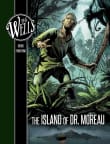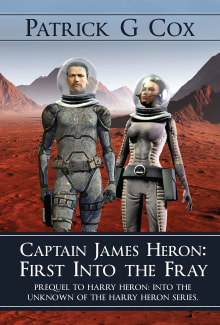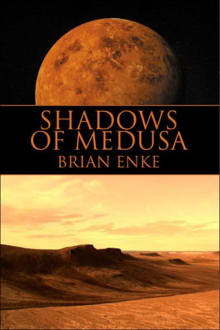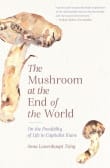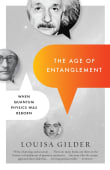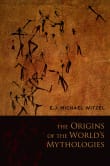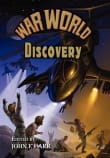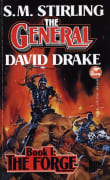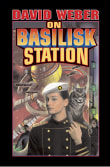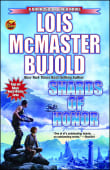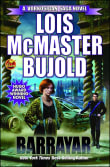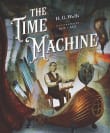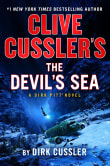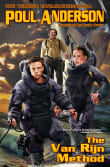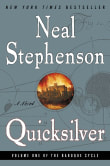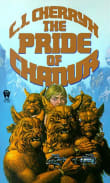Foundation
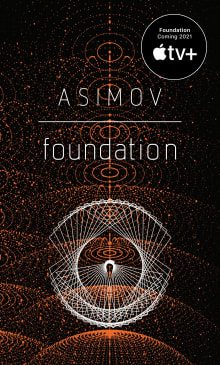
Book description
The first novel in Isaac Asimov’s classic science-fiction masterpiece, the Foundation series
THE EPIC SAGA THAT INSPIRED THE APPLE TV+ SERIES FOUNDATION, NOW STREAMING • Nominated as one of America’s best-loved novels by PBS’s The Great American Read
For twelve thousand years the Galactic Empire has ruled supreme. Now it…
Why read it?
12 authors picked Foundation as one of their favorite books. Why do they recommend it?

I like the psychological nature of this book. It pits human beings against an idea–a computer model of society. Having a degree in economics the concept particularly intrigued me.
It showed no matter how big and important we think we are there are forces outside of our control. This was one of the most innovative books I have read.
From J.D.'s list on science fiction to challenge your moral compass.

I won’t lie; this series hurt my brain. It did not hold back with the twists or the depth of dialogue and intrigue either. I love it for the way it showed me the sheer complexity a series could offer. Asimov built a world that felt so real—complete with deep political intrigue, technological advancements, and power struggles that echoed across generations.
What captivated me most was how the storylines tied together over time, often referring back to events from the first book in ways that made everything feel interconnected. You don’t just read the Foundation series; you invest in it,…
From Graham's list on possibilities for man that are not always sunshine.

This was my first venture into science fiction, and it is the greatest novel by one of the genre's masters. I found it to be truly inspiring in both scope and concept.
The story deals with the collapse of the imperial empire, the rise of a new federation, and a future of possibilities I had never imagined. I simply could not put it down and went on to read all the other books in the series. Asimov makes the everyday sound extraordinary.
I was drawn to the way the main characters in this story are normal people, more or less…
From Mike's list on scifi humanity’s future in space and time.
If you love Foundation...

Forgive me for citing another classic in the Science Fiction genre. My interpretation of Seldon’s Psychohistory is that it is a reasonable premise, being based on the law of large numbers. If only there was something in our present day based on large data models, like maybe language? Yes, we’re living in the dawn of “psychohistory,” but instead of predicting fundamental shifts in human society, today’s AI is telling us what detergent to buy and which politician to vote for. Sad.
It takes a lot of time and a great deal of commitment to read the Foundation Series and the…
From Perry's list on inspiring depressing books Science Fiction.

While it is best known for being the first book to introduce the concept of a "galactic empire," the real juice comes from the gradual revelation of a profound thesis: Epistemology and Persuasion Science are the most important academic disciplines of all.
This was the inspiration for my own journey into those two fields and led to my career in Military Intelligence.
While these explorations are ultimately liberating, this liberation does not come without a cost. I found myself truly in the dilemma of Plato's Allegory of the Cave: I had to accept both the obligation to free minds and…
From Mark's list on self-help books masquerading as sci-fi.

This far-reaching story of the future of civilization has fascinated me since I first picked it up. The invention of a scientific discipline, psychohistory, upon which to design and plan for the rise and fall of civilizations across thousands of years. As a writer, this blew me away just from a planning and plotting perspective – aligning all these pieces to line up and fall into place has been a shining example to me of what can be accomplished by a superior mind.
From Lauren's list on sci-fi to face the end of the world with.
If you love Isaac Asimov...

Foundation was inspired by Gibbons’ History of the Decline and Fall of the Roman Empire, and it shows. The series spans millennia, with dark ages and rediscoveries, civilization versus barbarism and naked imperial aggression. Asimov was not the first writer to create a “future history” (Olaf Stapledon’s Starmaker predates it by more than a decade) but he certainly brought the concept to popular consciousness. Thought-provoking and dizzying in scope, Foundation remains a bedrock of modern science fiction.
From Brian's list on classic sci-fi recommended by a sci-fi novelist.

If you only know Foundation from its recent television incarnation, you might think it’s principally about cloned emperors and a young woman with psychic powers. But Asimov’s actual book, consisting of stories written when he was quite young, is about the attempt to found a kind of ark where a remnant of galactic civilization can outlast an imminent dark age. His heroes aren’t warriors, but include academics, politicians, and, in two of the five stories (“The Traders” and “The Merchant Princes”), merchants. These are buccaneering traders on the edge of civilization, who sometimes resort to blackmail, but they mostly use…
From D.J.'s list on science fiction adventures about traders.

Isaac Asimov was an author who thought out of the box. Foundation is one of the best science fiction series of all time. Asimov was insightful for the time he lived – mainly during WWII – and used the turmoil of the uncertainties of war to weave a much bigger story. Instead of Hitler’s Thousand-Year Reich, you have a galactic war spanning a thousand years where Earth is a forgotten world. Asimov’s use of psychohistory to predict the future is spellbinding and pulls readers into his story and holds them captive until the last page. Surviving WWII enabled Asimov to…
From Tony's list on written by science fiction masters.
If you love Foundation...

While the Foundation novels feel a bit dated now, Asimov’s vision of a sweeping galactic empire has influenced everything from Star Wars (Coruscant is basically a rip-off of Trantor) to The Hitchhiker’s Guide to the Galaxy. The series chronicles the fall of the old empire and the rise of a new one, and raises questions of fate vs. free will, historical inevitability, and the impact that individuals can have on the course of events much larger than themselves.
From Joe's list on large galactic empires.
If you love Foundation...
Want books like Foundation?
Our community of 12,000+ authors has personally recommended 87 books like Foundation.



